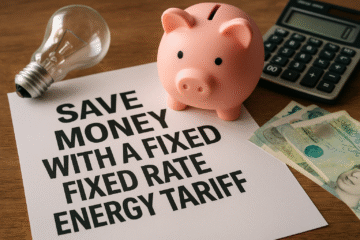The transition to renewable energy has become a global priority as the world grapples with the challenges of climate change and the need to reduce carbon emissions. Renewable energy sources such as solar, wind, hydro, and geothermal power offer a sustainable and environmentally friendly alternative to traditional fossil fuels. Governments around the world are increasingly recognising the importance of transitioning to renewable energy and are implementing various incentives to encourage businesses and individuals to make the switch. These incentives can take the form of financial support, tax credits, grants, and other forms of assistance to make renewable energy more accessible and affordable. In this article, we will explore the various government incentives for renewable energy, the financial and environmental benefits of making the transition, and how businesses and individuals can access these incentives to make the switch to renewable energy.
Understanding Government Incentives for Renewable Energy
Government incentives for renewable energy are designed to make it more financially viable for businesses and individuals to invest in renewable energy technologies. These incentives can take many forms, including tax credits, grants, rebates, and low-interest loans. For example, in the UK, the government offers the Renewable Heat Incentive (RHI) which provides financial support to businesses, public sector organisations, and non-profit organisations to install renewable heating technologies such as biomass boilers, heat pumps, and solar thermal systems. The RHI scheme provides quarterly payments over a period of 20 years based on the amount of renewable heat generated. Another example is the Feed-in Tariff (FIT) scheme which provides payments to individuals and businesses that generate their own electricity from renewable or low-carbon sources such as solar panels or wind turbines. These incentives are designed to offset the upfront costs of investing in renewable energy technologies and make it more financially attractive for businesses and individuals to make the switch.
Financial Benefits of Government Incentives for Renewable Energy
The financial benefits of government incentives for renewable energy are significant and can make a substantial difference in the cost of transitioning to renewable energy. By providing financial support in the form of tax credits, grants, and other incentives, governments can help offset the upfront costs of investing in renewable energy technologies. This can make it more financially viable for businesses and individuals to make the switch to renewable energy, leading to long-term cost savings on energy bills and reduced reliance on traditional fossil fuels. In addition, government incentives can also stimulate investment in the renewable energy sector, creating jobs and economic growth. For example, a study by the International Renewable Energy Agency (IRENA) found that doubling the share of renewable energy in the global energy mix by 2030 could increase global GDP by up to 1.1% or $1.3 trillion. This demonstrates the significant financial benefits of transitioning to renewable energy with government support.
Environmental Benefits of Transitioning to Renewable Energy
In addition to the financial benefits, transitioning to renewable energy also offers significant environmental benefits. Renewable energy sources such as solar, wind, hydro, and geothermal power produce minimal greenhouse gas emissions and have a much lower environmental impact compared to traditional fossil fuels. By reducing reliance on fossil fuels, transitioning to renewable energy can help mitigate climate change, reduce air and water pollution, and protect natural habitats. For example, a study by the National Renewable Energy Laboratory (NREL) found that increasing the use of renewable energy sources could reduce greenhouse gas emissions by up to 80% by 2050. This demonstrates the potential for renewable energy to play a key role in addressing climate change and protecting the environment for future generations.
How to Access Government Incentives for Renewable Energy
Accessing government incentives for renewable energy can vary depending on the country and region, but there are common steps that businesses and individuals can take to take advantage of these incentives. Firstly, it is important to research and understand the various incentives available in your area, including tax credits, grants, rebates, and other forms of financial support. Many governments also offer online resources and information to help businesses and individuals navigate the process of accessing incentives for renewable energy. It is also important to work with qualified professionals such as renewable energy installers and financial advisors who can help navigate the process and ensure that you are taking full advantage of available incentives.
Case Studies: Successful Transition to Renewable Energy with Government Incentives
There are numerous case studies of businesses and individuals successfully transitioning to renewable energy with government incentives. For example, in Germany, the government's feed-in tariff scheme has been instrumental in driving investment in solar power, leading to a significant increase in solar installations across the country. As a result, Germany has become a global leader in solar power generation and has significantly reduced its reliance on traditional fossil fuels. Similarly, in the United States, the federal Investment Tax Credit (ITC) has been instrumental in driving investment in solar power, leading to a rapid increase in solar installations across the country. These case studies demonstrate the significant impact that government incentives can have in driving investment in renewable energy and accelerating the transition away from traditional fossil fuels.
The Future of Renewable Energy with Government Support
In conclusion, government incentives for renewable energy play a crucial role in driving investment in sustainable and environmentally friendly energy sources. By providing financial support in the form of tax credits, grants, rebates, and other incentives, governments can make it more financially viable for businesses and individuals to invest in renewable energy technologies. This not only leads to long-term cost savings on energy bills but also stimulates investment in the renewable energy sector, creating jobs and economic growth. In addition, transitioning to renewable energy offers significant environmental benefits by reducing greenhouse gas emissions and mitigating climate change. As governments around the world continue to recognise the importance of transitioning to renewable energy, it is clear that government support will play a key role in shaping the future of sustainable energy production. By accessing government incentives for renewable energy, businesses and individuals can contribute to a more sustainable and environmentally friendly future for generations to come.






